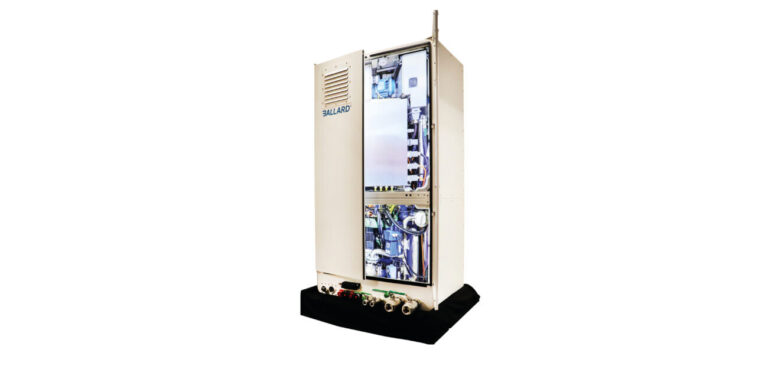A pair of 200kW FCwave fuel cell modules have been delivered by Ballard Power Systems to Norwegian ferry and express boat operator Norled to be used to power the liquid hydrogen MF Hydra ferry later this year.
Designed, manufactured and tested at Ballard’s Marine Center of Excellence based in Hobro, Denmark, the two FCwave fuel cell modules were subsequently approved by classification and certification body DNV. The approval confirms the systems meet marine industry quality and safety standards, regulations and international conventions.
Said to be the world’s first liquid hydrogen-powered ferry, the MF Hydra will also be the first hydrogen-powered vessel to be approved by the Norwegian Maritime Directorate, the Norwegian Directorate for Civil Protection and Emergency Planning, and DNV.
“This is a pioneering project. It represents a significant turning point for both Norled A/S and the rest of the maritime sector,” said Erlend Hovland, chief technology officer, Norled. “We believe that hydrogen will play a significant role in the future of zero-emission ships. The delivery of the fuel cell modules from Ballard enables us to continue our work to deliver and operate the world’s first ferry to be fueled by liquid hydrogen.”
Capable of carrying up to 300 passengers and 80 cars, the vessel will service a route between Hjelmeland-Skipavik and Nesvik in Norway.
“The handover of the FCwave modules to Norled marks an important milestone for Ballard and demonstrates that hydrogen fuel cells are out of the starting blocks and on the way to lead in zero-emission technologies for the marine industry,” commented Søren Østergaard Hansen, general manager, marine and stationary, Ballard Power Systems Europe. “Through the experience gained in projects with Norled and other marine partners, we have taken a big step towards the goal of receiving the official Type Approval from DNV, which will certify that the FCwave has met the functional, design, documentation and safety requirements necessary for global marine commercialization.”
The Norwegian government aims to reduce emissions produced by domestic shipping and fishing vessels by 50% by 2030. A new ruling also requires cruise ships and ferries in the country’s World Heritage Fjords to be zero-emission only no later than 2026, making the fjords the first zero-emission zone at sea.



